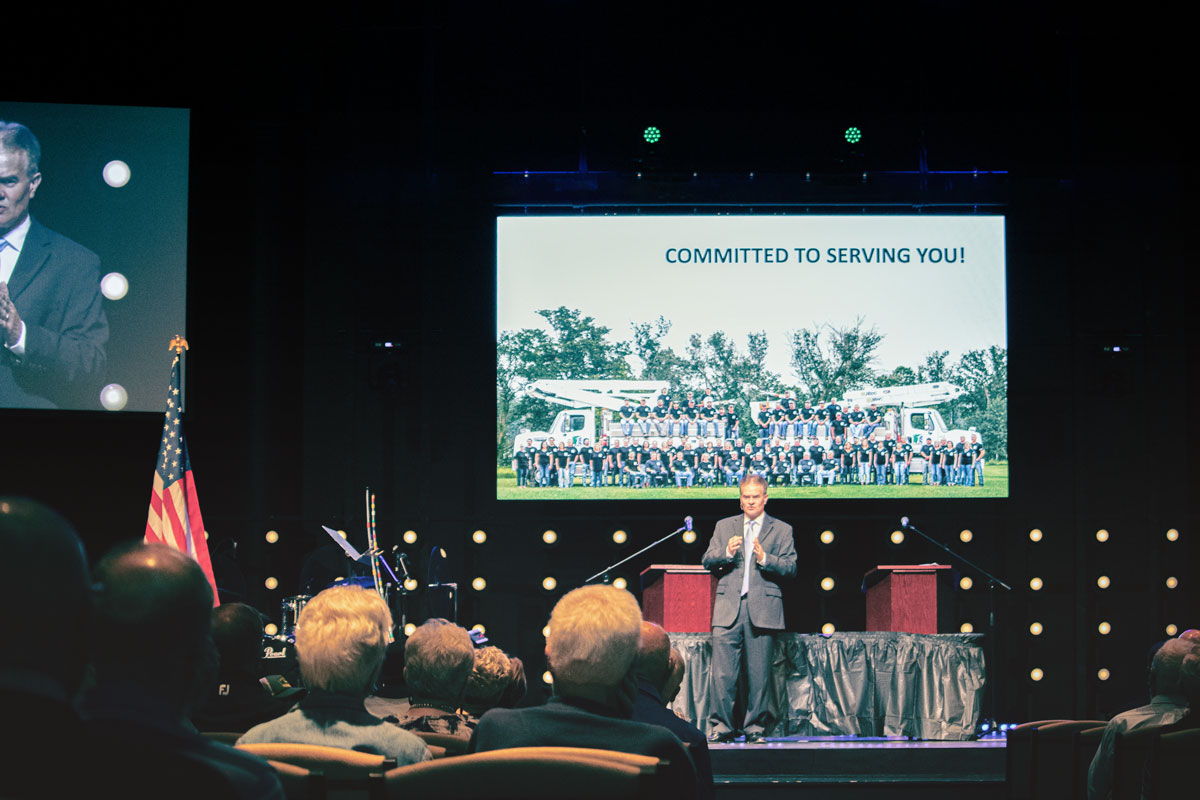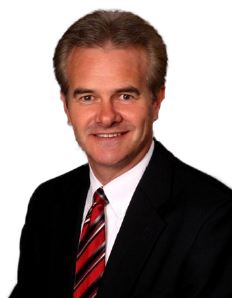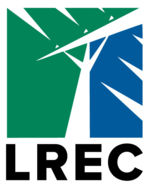
Great Turnout for Our 2022 Annual Meeting!
 We had a great 85th Annual Meeting on June 2nd, with in-person meetings in Fergus Falls, Frazee, and Parkers Prairie, together with a livestream option. Approximately 1,200 individuals attended the event in-person or watched it online via livestream. By expanding our Annual Meeting model to include three in-person location options, we were able to connect with more of our members at places closer to their homes and businesses. This new model allowed 98% of our members to be within 25 miles of an Annual Meeting location. I am confident that this year’s attendance ranks as one of the highest in the past few decades. I encourage those of you who were unable to attend to watch the Annual Meeting videos.
We had a great 85th Annual Meeting on June 2nd, with in-person meetings in Fergus Falls, Frazee, and Parkers Prairie, together with a livestream option. Approximately 1,200 individuals attended the event in-person or watched it online via livestream. By expanding our Annual Meeting model to include three in-person location options, we were able to connect with more of our members at places closer to their homes and businesses. This new model allowed 98% of our members to be within 25 miles of an Annual Meeting location. I am confident that this year’s attendance ranks as one of the highest in the past few decades. I encourage those of you who were unable to attend to watch the Annual Meeting videos.
LREC’s Board Chair Tom Jennen opened the meeting and spoke about being grateful for his opportunity to serve on a board elected by LREC members, and how the cooperative model allows LREC to locally make decisions on matters that are extremely important to the members and their communities. Jennen recognized the retirement of directors Joyce Valley and Robert Shaw, both of whom served the cooperative so well for 15 years.
 LREC had a successful year in 2021, including positive member feedback, rate stability, the prioritization of reliability shown by recent upgrades made by LREC and Great River Energy (GRE) to transmission lines and substations, increasing equity reflecting the financial strength of the co-op, $1,838,490 of capital credits paid to members in 2021 (making it nine consecutive years of record capital credit retirements paid to members), and the growth of LREC’s natural gas subsidiary, Lake Region Energy Services (LRES).
LREC had a successful year in 2021, including positive member feedback, rate stability, the prioritization of reliability shown by recent upgrades made by LREC and Great River Energy (GRE) to transmission lines and substations, increasing equity reflecting the financial strength of the co-op, $1,838,490 of capital credits paid to members in 2021 (making it nine consecutive years of record capital credit retirements paid to members), and the growth of LREC’s natural gas subsidiary, Lake Region Energy Services (LRES).
LREC welcomes two new directors, Charlie Blixt and Gary Olson. Blixt was elected in a two-member race in District 6 and Olson was elected by acclamation in District 9. Incumbent director Mike Brasel of District 3 was elected by acclamation.
LREC is Prepared for Potential Planned Electric Service Interruptions
Energy providers across the country are warning energy users about summer energy demand. LREC is taking a proactive approach by putting measures in place to ensure the safety and reliability of our electric grid. The North American Electric Reliability Corporation (NERC) 2022 Summer Reliability Assessment indicated the north and central areas of the Midcontinent Independent System Operator (MISO) region are in a “high risk” category due to generator retirements and increased demand. This area includes the LREC service area. Though GRE has sufficient generation resources for LREC and its member cooperatives, there are other utilities in the MISO market, in other states for example, that rely on market purchases for sizable portions of their power portfolio. This can leave the market short on generation capacity when most of the MISO market experiences extreme weather, meaning, utilities will deploy their demand response programs or perform voluntary load reductions.
In response to these energy concerns, LREC is prepared to enact our current demand response (load control/off-peak) programs. There are approximately 14,000 LREC members using one or more of our 28 demand response programs. Combining LREC’s demand response programs with other GRE cooperatives across Minnesota and parts of Wisconsin, there are a total of 200,000 services participating in demand response. This can include cycled air conditioning or controlled water heaters, irrigators, commercial loads with a standby generator, etc. Because of these robust programs, GRE can control 15% of its peak day load, or the equivalent of reducing electricity demand by more than 200,000 homes on a normal summer day, making a huge impact. GRE is very proactive in anticipation of extreme weather events and works closely with LREC and our sister cooperatives to ensure we are properly prepared. In the event of a grid emergency, MISO calls on additional power supply resources, imports energy from other regions, and performs voluntary load reductions to manage the electric system.
Temporary controlled manual load sheds, also known as temporary rolling blackouts, are used as a last resort to keep the whole grid in balance. If there are temporary controlled load sheds, LREC members may experience a one-hour power outage at the substation level. LREC will communicate with our members about these events via our website, SmartHub, and social media platforms to ensure our members are informed of the current situation. While rolling blackouts can be stressful, please know that we have a plan and so does GRE. Ensuring there is enough power generation for all members, GRE has carefully constructed a portfolio of power supply resources that provide low-cost renewable energy, along with a powerful fleet of dispatchable resources that allow it to generate or receive additional energy when needed.
Recent Storm Systems
A massive Memorial Day storm caused approximately 9,800 members to be out of power, but all services were safely back on within 72 hours. The Memorial Day storm caused a widespread track of damage throughout our service territory. The damages sustained were some of the worst experienced by LREC in recent history. Unfortunately, while many of our members were still recovering from the Memorial Day storm, another storm system hit our territory on June 20th. Approximately 6,000 members were out of power as a result. Again, our employees were back at it and hit the ground running to get all services safely back on within approximately 48 hours.
 I would like to thank the LREC employees and their families for their dedication and determination to get the power back on during these events. Also, I thank all our members for their patience and consideration during these stressful situations. My thoughts are with you all during this time. My hope is that you all are safe and that any property damage you sustained can be repaired and addressed in a timely manner.
I would like to thank the LREC employees and their families for their dedication and determination to get the power back on during these events. Also, I thank all our members for their patience and consideration during these stressful situations. My thoughts are with you all during this time. My hope is that you all are safe and that any property damage you sustained can be repaired and addressed in a timely manner.

 Lake Region Electric Cooperative
Lake Region Electric Cooperative